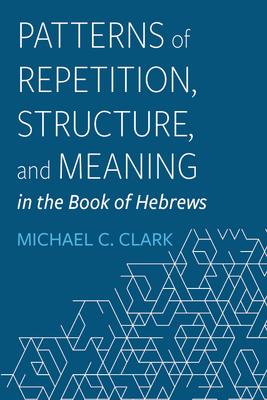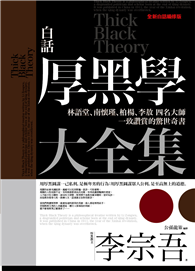While many have recognized unusual patterns of repetition within the book of Hebrews, which seem to play a range of important functions within the text, the consistency of this patterning has not been fully appreciated and its function has been largely unexamined. This study investigates the location and function of what we have termed "link clusters" within Hebrews from the perspective of discourse analysis, to gain fresh insight into the language, structure, and genre of Hebrews; into the book’s relationship to the Old Testament; and into the book’s authorship and meaning. This work proposes, first, that Hebrews uses repetition to establish formal connections between words and phrases marked as significant by their location and context with respect to other similarly connected words and phrases; second, that link clusters serve to structure the book of Hebrews by uniting the text into a series of overlapping, concentric, and coherent units; and, third, that link clusters also serve an important topical function, clarifying and amplifying intended meaning as pairs of matching topic sentences that respectively introduce and conclude each section and subsection of the discourse by summarizing its content.
| FindBook |
有 1 項符合
Patterns of Repetition, Structure, and Meaning in the Book of Hebrews的圖書 |
 |
Patterns of Repetition, Structure, and Meaning in the Book of Hebrews 作者:Clark 出版社:Pickwick Publications 出版日期:2024-04-01 語言:英文 規格:平裝 / 384頁 / 22.86 x 15.24 x 1.96 cm / 普通級/ 初版 |
| 圖書館借閱 |
| 國家圖書館 | 全國圖書書目資訊網 | 國立公共資訊圖書館 | 電子書服務平台 | MetaCat 跨館整合查詢 |
| 臺北市立圖書館 | 新北市立圖書館 | 基隆市公共圖書館 | 桃園市立圖書館 | 新竹縣公共圖書館 |
| 苗栗縣立圖書館 | 臺中市立圖書館 | 彰化縣公共圖書館 | 南投縣文化局 | 雲林縣公共圖書館 |
| 嘉義縣圖書館 | 臺南市立圖書館 | 高雄市立圖書館 | 屏東縣公共圖書館 | 宜蘭縣公共圖書館 |
| 花蓮縣文化局 | 臺東縣文化處 |
|
|
圖書介紹 - 資料來源:博客來 評分:
圖書名稱:Patterns of Repetition, Structure, and Meaning in the Book of Hebrews
內容簡介
作者簡介
Since completing his PhD on Hebrews, Mike Clark has taught New Testament and preaching at the Martin Bucer Seminar in Munich, Germany, while also working in a range of church and other ministry contexts in Australia. He is presently serving as the Anglicare chaplain at the Cobham Youth Justice Centre in Sydney.
|











